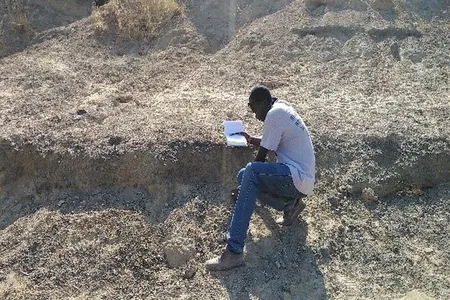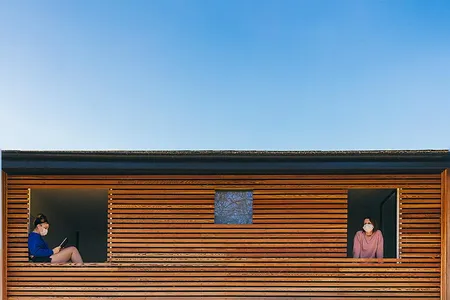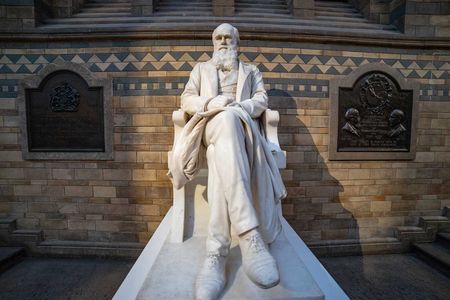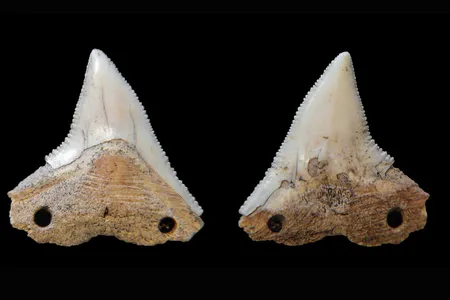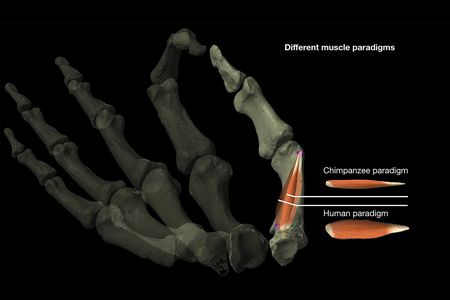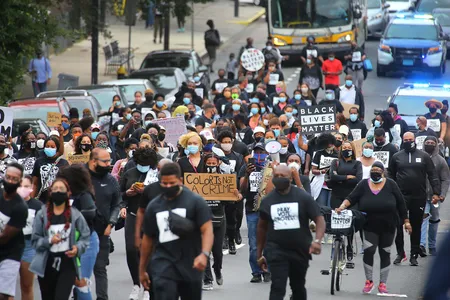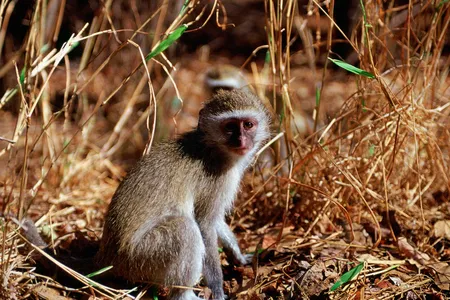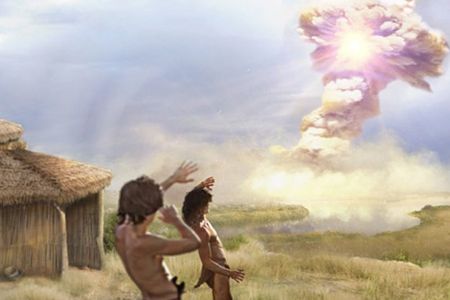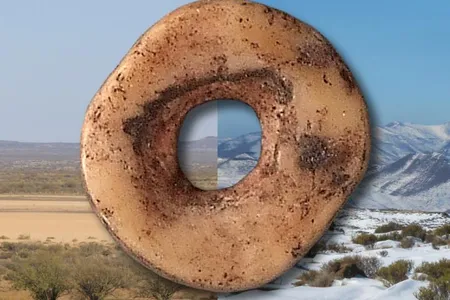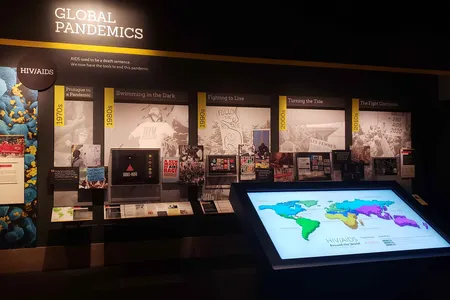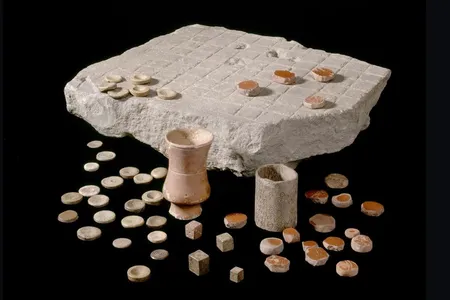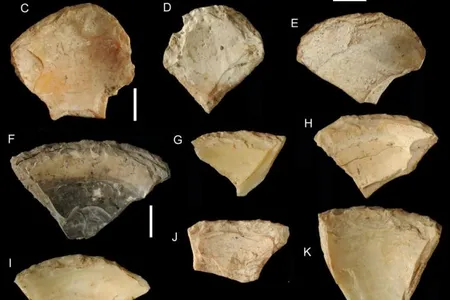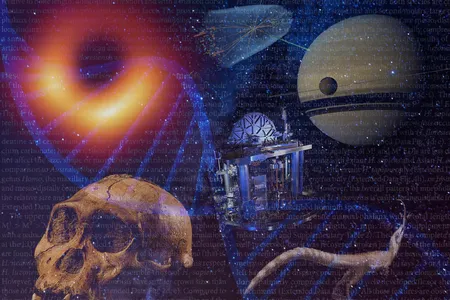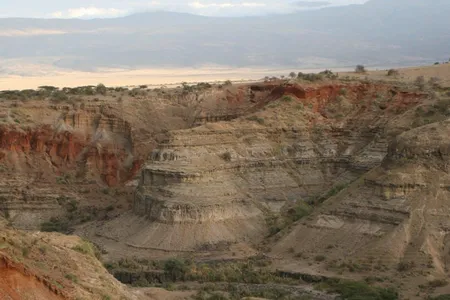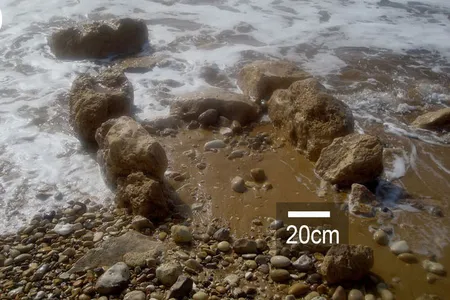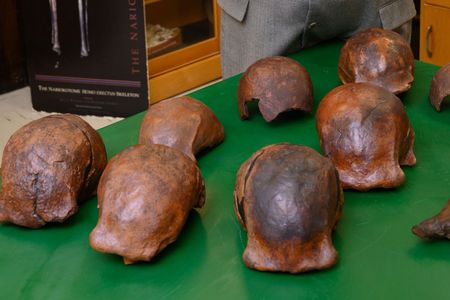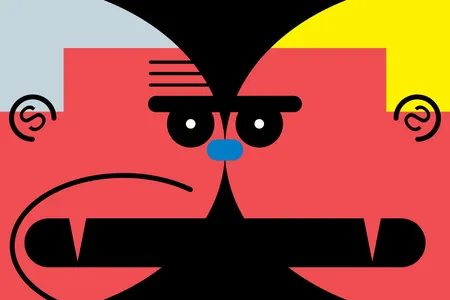How the Pandemic Changed Scientific Exploration
Seven Smithsonian scientists continued to discover the secrets of the natural world safely during the pandemic
Why This Pandemic Won’t Be the Last
Smithsonian biological anthropologist Sabrina Sholts says Covid-19 illustrates that what makes us human also makes us more vulnerable to global contagions
How Darwin’s ‘Descent of Man’ Holds Up 150 Years After Publication
Questions still swirl around the author’s theories about sexual selection and the evolution of minds and morals
Why Did Ancient Indigenous Groups in Brazil Hunt Sharks?
New studies show that shark meat may have constituted half of their diet and that the beasts’ teeth were used as arrow tips and razor blades
How Dexterous Thumbs May Have Helped Shape Evolution Two Million Years Ago
Fossils and biochemical models show tool-wielding hominins used their hands like we do today
Researchers Say the Purpose of Sleep Shifts During the ‘Terrible Twos’
A multidisciplinary team offers up an exact age when REM sleep decreases
Why Black, Indigenous and Other People of Color Experience Greater Harm During the Pandemic
Scholars take a deep dive into how structural racism intersects with public health
Anthony Fauci and Alan Alda Talk Science and 26 Other Smithsonian Programs Streaming in September
This month drop in on events about global climate justice, Picasso’s ‘Guernica,’ bird brains, the Supreme Court, William Faulkner, orchids and more
Monkeys’ Attraction to Burned Grasslands May Offer Clues to Human Ancestors’ Mastery of Fire
A new study finds monkeys enter charred savannahs to avoid predators, lending support to a controversial theory about what drew hominins to blazes
Did Einstein Understand the Limitations of Testing?
Smithsonian fellow Kimberly Probolus looks into the past and future of knowledge tests
A Comet May Have Destroyed This Paleolithic Village 12,800 Years Ago
Fragments of a comet likely hit Earth 12,800 years ago, and a little Paleolithic village in Syria might have suffered the impact
Humans Have Been Taking Out Insurance Policies for at Least 30,000 Years
A study of beads made from ostrich eggshells suggests the humans of the Kalahari Desert region formed social networks to help each other
How Museums Can Help the Public Make Sense of Pandemics
We can’t let fear overrun science, says Sabrina Sholts, the Smithsonian’s curator of biological anthropology
The Best Board Games of the Ancient World
Thousands of years before Monopoly, people were playing games like Senet, Patolli and Chaturanga
To Craft Cutting Tools, Neanderthals Dove for Clam Shells on the Ocean Floor
Clam shell knives from a cave on the Italian coast suggest Neanderthals dove underwater for resources
The Top Ten Scientific Discoveries of the Decade
Breakthroughs include measuring the true nature of the universe, finding new species of human ancestors, and unlocking new ways to fight disease
Archaeologists Are Unearthing the Stories of the Past Faster Than Ever Before
Recent research helps reveal the origins of humans, determine what ancient people ate and monitor historical sites from the sky
Oldest Known Seawall Discovered Along Submerged Mediterranean Villages
Archaeologists believe the 7,000-year-old structure was intended to protect settlements as sea levels rose
Fossils From Some of the Last Homo Erectus Hint at the End of the Long-Lived Species
Homo erectus, one of the first species of the Homo genus, survived for longer than any other close human ancestor
The Psychology Behind Generational Conflict
Older people have groused about younger people for millennia. Now we know why
Page 2 of 26
